In Focus This Week
Georgia leads the way with elections training for police
All Georgia police will now receive training about state’s election laws
By M. Mindy Moretti
electionline.org
The intersection of law enforcement and elections has a long and fraught history.
 However, the elections and aftermath of 2020 profoundly changed the way election officials had to perform an already complicated, tedious, and thoroughly public process. Elections officials at all levels are under attack.
However, the elections and aftermath of 2020 profoundly changed the way election officials had to perform an already complicated, tedious, and thoroughly public process. Elections officials at all levels are under attack.
While these threats have necessitated greater police involvement, how to do that without infringing on someone’s most sacred right – the right to vote – has presented challenges.
Organizations like the Committee for Safe and Secure Elections (CSSE) have worked to bring together law enforcement and elections officials to overcome those challenges.
In Georgia, Chris Harvey, deputy director at Georgia Peace Officer Standards and Training Council and who previously worked in the Georgia secretary of state’s office, saw a solution for his state.
“The personal attacks and threats that local election officials received and reported to me were gut-wrenching because I knew so many of them to be extremely dedicated to doing their jobs faithfully, legally, and honorably,” Harvey said.
When Harvey left the secretary of state’s office in 2021 and returned to law enforcement in a training capacity, he said he quickly saw a way that he could get elections officials the support of law enforcement that many of them had reported to him that they had sometimes found lacking.
“I knew that law enforcement was untrained to deal with the intricacies of elections laws and processes, and that if law enforcement could provide practical protection for the election officials and their teams, that it would make the difficult job of conducting elections a little easier, and much safer for everyone,” Harvey said. “I could tell that the political temperature was not going to cool in the near future and that law enforcement officers were going to be critical partners with election officials, and that as someone who had worked extensively in both worlds, I was uniquely qualified to bring them together.”
 In July, Georgia became the first state to mandate election training for its law enforcement officers. Basic training at Georgia’s police academies will soon include POST’s one-hour course on election laws and response, teaching recruits about election interference, threats, de-escalation tactics, and protections against voter intimidation. According to Harvey, the training was included in a massive overhaul of the state-mandated basic police officer training requirements.
In July, Georgia became the first state to mandate election training for its law enforcement officers. Basic training at Georgia’s police academies will soon include POST’s one-hour course on election laws and response, teaching recruits about election interference, threats, de-escalation tactics, and protections against voter intimidation. According to Harvey, the training was included in a massive overhaul of the state-mandated basic police officer training requirements.
“Our team at GA POST completely rebuilt the basic requirements to become a police officer and I was able to include the election training as a component of the revision,” Harvey said. “There was no resistance to including the election training in the new curriculum, as many law enforcement agencies in Georgia had been familiar with the likelihood that they would have officers responding to calls and being asked by local election officials to provide additional security resources.”
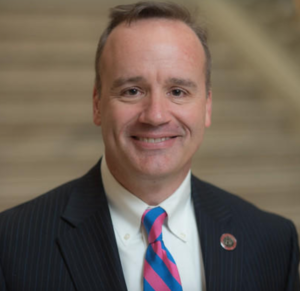 Harvey said he spoke with several local election officials about the training, and with members of the secretary of state’s office about the idea. In 2021 and 2022 while doing some presentations to the Georgia Chiefs of Police Association and the Georgia Sheriffs’ Association helped crystallize the production of the training.
Harvey said he spoke with several local election officials about the training, and with members of the secretary of state’s office about the idea. In 2021 and 2022 while doing some presentations to the Georgia Chiefs of Police Association and the Georgia Sheriffs’ Association helped crystallize the production of the training.
“It’s a great opportunity for our law enforcement to have election law training to better understand the nuances of how situations might need to be handled differently on Election Day compared to every other day,” said Tate Fall, director of elections and voter registration for Cobb County.
Fall noted that one of the common situations that they’ve seen give law enforcement pause is the different boundary lines outside of precincts.
“When we call for law enforcement to remove someone for electioneering within the 150-foot line, they often are hesitant because their first thought is that the activity is protected by the First Amendment,” Fall said. “Learning the different restrictions on what can occur within 150 feet and 25 feet of the polling place will better equip them to handle those situations.”
The basic training in the police academy is an hour and will likely remain at that level, Harvey said. However, the need to train command staff officers and chiefs and sheriffs is an ongoing process that can be done at conferences, regional meetings, and tabletop exercises.
“The goal is to have law enforcement agency buy-in at a strategic level, while training the individual officers to be able to respond effectively and intelligently to immediate issues they might encounter as the result of a 9-1-1 call,” Harvey said. “When these two goals are pursued in a parallel manner, the result is a well-trained and well-prepared law enforcement partnership with their local election officials.”
While much of the response to the training has been positive, shortly after news broke about the new training officials from Fair Fight and the ACLU of Georgia expressed concerns about it.
Harvey said that he reached out to both organizations immediately after reading of their concerns and invited them to his office where they reviewed the training. He eventually had a conference call with four groups that had expressed concerns.
“I was determined to make this a very open process and to explain why this was being done, and at the conclusion of the call, it seemed that most of their concerns had been allayed. The training, I told them, was not designed to have polling places bristling with armed law enforcement officers, but rather designed to make sure that if an officer was dispatched to a situation at an election event or polling place, the officer was aware of the existing laws governing situations such as voter intimidation, interfering with elections and election officials, and other prohibited conduct,” Harvey explained.
“I also stressed that the training had specific admonitions about the potential for officers at polling places to be an intimidating presence and that officers needed to be aware that their actions at polling places could have negative consequences for voting and that training, care, and planning could mitigate some of these effects.”
 Harvey has some advice for other states who want to consider adding this to their own training. First step is to gather all law enforcement relevant election laws together. The CSSE has created Law Enforcement Quick Reference Guides for each state that put all law enforcement-related state election laws in a compact booklet that an officer can carry in their pocket or download to their phone.
Harvey has some advice for other states who want to consider adding this to their own training. First step is to gather all law enforcement relevant election laws together. The CSSE has created Law Enforcement Quick Reference Guides for each state that put all law enforcement-related state election laws in a compact booklet that an officer can carry in their pocket or download to their phone.
Since most law enforcement officers have never been exposed to these laws, they need to learn them. Then, the election officials should contact their respective law enforcement agency or agencies that can provide assistance and start talking about needs, resources, and expectations.
“The single most powerful tool that each side has is a good relationship with the other so that potential problems can be identified, and possible solutions explored,” Harvey said.
New from CEIR
Lessons Learned from State Upgrades to Voter Registration Databases
Case Studies from Arizona, Georgia, Nevada, and Rhode Island
By April Tan, Kyle Yoder, and Kyle Upchurch
Center for Election Innovation & Research
 People across the country are focusing on how key factors in the election hold up to the pressure of the 2024 general election. For election administrators, one of the most important factors is the performance of the voter registration database (VRDB). While VRDBs often receive little attention outside of election administration circles, they are a critical piece of election infrastructure.
People across the country are focusing on how key factors in the election hold up to the pressure of the 2024 general election. For election administrators, one of the most important factors is the performance of the voter registration database (VRDB). While VRDBs often receive little attention outside of election administration circles, they are a critical piece of election infrastructure.
The widespread adoption of VRDBs following the passage of HAVA in 2002 brought voter registration into the twenty-first century, bolstering the efficiency, security, and accessibility of elections across the country. However, two decades of continued technological advancement mean that many states are now finding their VRDBs in need of updates. Changing a VRDB is not a task for this fall, but the coming months are an opportunity to understand how to build on strengths and bolster current VRBDs in 2025.
CEIR’s new report catalogs key insights, promising practices, and lessons learned from four states that recently replaced or are currently replacing their VRDB. CEIR’s Research Team interviewed state election officials and surveyed local election officials in four states—Arizona, Georgia, Nevada, and Rhode Island—to draw key insights and lessons as well as create detailed case studies about their experiences planning, developing, and implementing a new system. These case studies describe each state’s respective processes and unique insights from officials working with the new VRDB.
For other states preparing to upgrade or replace their VRDB, the report identifies six themes among these case studies as promising practices and lessons learned:
- Begin the process of replacing the statewide VRDB earlier rather than later.
- Assess the state team’s internal capabilities and priorities, and contract with external parties and vendors accordingly.
- Involve local election officials early and often in the VRDB replacement process.
- Consider the possibility (and tradeoffs) of a phased rollout.
- Prioritize efficiency and ease of use for the new VRDB.
- Emphasize effective communication for stakeholder support and project management success.
While the unique needs of each state ensure that no two VRDBs will be exactly the same, this report aims to equip policymakers and state election officials with knowledge of key insights when they consider updating or replacing their own VRDB in 2025.
April Tan is Senior Research Associate at CEIR and project lead for this report.
Kyle Yoder is Research Manager at CEIR.
Kyle Upchurch is Program Manager for the CEIR Research Team.
electionline Daily News Email
 What’s the best part of waking up? electionline Daily News in your inbox of course so be sure to sign up for your daily dose.
What’s the best part of waking up? electionline Daily News in your inbox of course so be sure to sign up for your daily dose.
Each morning you’ll receive the top headlines of the day, plus a listing of states featured in that day’s news round up.
To sign up, simply visit our site and provide us with your email and you’ll begin receiving the news in your inbox each morning.
We Google so you don’t have to!
New Research and Resources
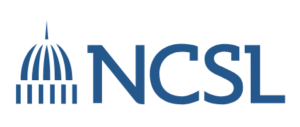 Voter Education: The National Conference of State Legislatures (NCSL) recently released “Elections Defined,” a series of short videos that cover a dozen key elections administration concepts. For policymakers and any viewers who may not know what happens before and after they cast their ballot, the series provides definitions of some key processes involved in running elections. The topics range from ballot duplication and ballot curing to post-election audits and results reporting.
Voter Education: The National Conference of State Legislatures (NCSL) recently released “Elections Defined,” a series of short videos that cover a dozen key elections administration concepts. For policymakers and any viewers who may not know what happens before and after they cast their ballot, the series provides definitions of some key processes involved in running elections. The topics range from ballot duplication and ballot curing to post-election audits and results reporting.
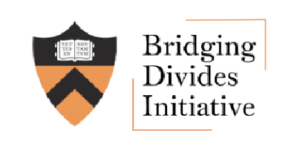 De-Escalation Resources: The Bridging Divides Initiative and The Elections Group have partnered to create a new set of de-escalation resources to support election workers, including:
De-Escalation Resources: The Bridging Divides Initiative and The Elections Group have partnered to create a new set of de-escalation resources to support election workers, including:
- A 30-minute self-paced course, accessible through The Elections Group’s new Election Learning Lab. Officials can sign up election workers and other team members for the training here.
- Template training slides are available for offices to utilize for in-person election
 worker de-escalation training sessions.
worker de-escalation training sessions. - Information on organizations that provide comprehensive in-person and virtual de-escalation training sessions from BDI’s state-by-state De-Escalation Directory
- A jointly hosted webinar on de-escalation resources and principles – to be held August 29 at noon ET. Register here
By prioritizing de-escalation principles for election workers, election officials can help foster an environment where everyone feels heard and respected, allowing for safe and productive interactions. Election officials interested in using the self-paced course should fill out the form linked below by September 15 to ensure access.
 2020 Election Data & Racial Disparities: In a new analysis, Race and Representation in Battleground Counties, the Union of Concerned Scientists (UCS) looks closely at the actual 2020 election data in *11 key counties in seven swing states. The numbers show significant racial disparities in both turnout and ballot acceptance—a gap that means Black and Brown voters are systematically under-represented in elections. *AZ – Maricopa Co; GA – Fulton; MI – Wayne; NC – Columbus, Durham, Mecklenberg; OH – Cuyahoga, Lorain; PA – Allegheny, Philadelphia; WI – Milwaukee
2020 Election Data & Racial Disparities: In a new analysis, Race and Representation in Battleground Counties, the Union of Concerned Scientists (UCS) looks closely at the actual 2020 election data in *11 key counties in seven swing states. The numbers show significant racial disparities in both turnout and ballot acceptance—a gap that means Black and Brown voters are systematically under-represented in elections. *AZ – Maricopa Co; GA – Fulton; MI – Wayne; NC – Columbus, Durham, Mecklenberg; OH – Cuyahoga, Lorain; PA – Allegheny, Philadelphia; WI – Milwaukee
The new analysis is available in an interactive map that, for the first time, shows 2020 turnout rates and ballot rejections at a precinct-by-precinct level.
Presenting this analysis and data in advance of the 2024 election serves several purposes:
- Establishes a comparative baseline for voter turnout and ballot rejection rates to enable better identification of any irregularities in the 2024 election and provide the foundation for future analytic work.
- Provides precinct-level 2020 voting data to help counter false claims of election fraud.
- Affirms that claims of widespread illegal voting in these battleground counties are false and lack merit and evidence. 2020 election data show that only a minuscule fraction (less than 1%) of all ballots cast were rejected for voter eligibility reasons and that validated ballots were cast by eligible voters.
- Identifies low-turnout precincts to help strategically target voter mobilization and education efforts to increase participation in our democracy.
- Highlights the critical need to provide — and continually improve — election data transparency for the 2024 election and beyond. Read our recommendations for improving election data transparency .
This analysis is the latest example of the Union of Concerned Scientists’ commitment to harnessing science and scientists as guardians of democracy and provides a powerful foundation to advance equity and meaningful public participation in the future.
Election News This Week
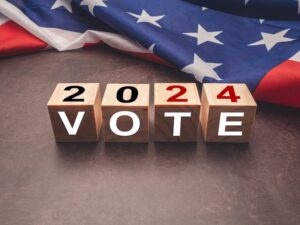 2024 Primary Updates: Five more states – Hawaii, Connecticut, Minnesota, Vermont, and Wisconsin – held primaries this week. Saturday was Hawaii’s primary. Just 269,912 of the 839,618 people registered statewide filled out a ballot. That works out to 32.1%. It’s a significant drop from the 39.8% turnout for the 2022 primary and an even more dramatic decline from the 51.2% in 2020. The latter election was the first for the state to use an all mail-in balloting system, though voters can still cast ballots in person at select locations on each island. According to final results released by the Hawaii Office of Elections on Sunday, the 2024 primary numbers represent the lowest turnout in the history of Hawaii as a state. While overall turnout on Maui was around 25%, in the areas devastated by wildfires last year, turnout was as low as 14%
2024 Primary Updates: Five more states – Hawaii, Connecticut, Minnesota, Vermont, and Wisconsin – held primaries this week. Saturday was Hawaii’s primary. Just 269,912 of the 839,618 people registered statewide filled out a ballot. That works out to 32.1%. It’s a significant drop from the 39.8% turnout for the 2022 primary and an even more dramatic decline from the 51.2% in 2020. The latter election was the first for the state to use an all mail-in balloting system, though voters can still cast ballots in person at select locations on each island. According to final results released by the Hawaii Office of Elections on Sunday, the 2024 primary numbers represent the lowest turnout in the history of Hawaii as a state. While overall turnout on Maui was around 25%, in the areas devastated by wildfires last year, turnout was as low as 14%
On Tuesday, voters in Connecticut, Minnesota, Vermont and Wisconsin headed to the polls. Overall it was relatively problem-free with turnout varying. Connecticut continues to adjust to early voting and Secretary of State Stephanie Thomas said the state may need to make adjustments to how long polls are open. “We may have too many days of early voting,” Thomas said. “I think, like most legislation, sometimes you learn some things after it passes.” Out of 1.2 million registered Democrats and Republicans, only about 8,700 voted early. In Minnesota voting was steady, but many folks were already looking ahead to November. “I just hope that Minnesotans realize that the next one is just around the corner,” Secretary of State Steve Simon said. Simon made the rounds Tuesday, visiting polls in Chaska, Hopkins and Minneapolis. He says he’s on a mission to get Minnesotans in what he calls “election mode.” Simon says the primary election is a warm-up for game day in November. “For the election judges, the poll workers, some of whom haven’t worked at an election for a year or two, this is an opportunity to shake off the rust, get into the groove,” he said. Voters and elections workers in Vermont also had November on their minds as they headed to the polls on Tuesday. At Ward 7 in Burlington’s New North End, clerk Jeff Comstock said it has been unusually slow. “I’m concerned I’m boring my volunteers today, which is not good motivation,” he said. Tuesday marked the return of ballot drop boxes in Wisconsin on Tuesday. “The transition to utilizing drop boxes has been going pretty smoothly thus far, and we hope that that’ll continue in November,” Paulina Gutiérrez, executive director of the Milwaukee Election Commission told Votebeat. There were two issues of note in Wisconsin on Tuesday. In Douglas County, the wrong Assembly primary candidates were printed on ballots for approximately 700 voters in the Town of Summit. And in Eau Claire, turnout was much higher than expected leading to lines and some polling locations running out of ballots. Overall, turnout throughout Wisconsin was high. With approximately 26% that’s a 60-year high.
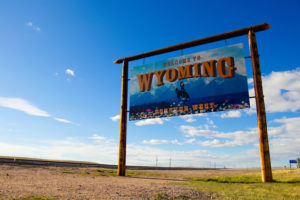 News from Wyoming: Wyoming Secretary of State Chuck Gray and the state’s county clerks have been at odds several times this year and most recently it’s been over voting machine testing. Last week, claiming that Larimer County Clerk Debra Lee failed to follow all statutory guidelines during testing, the county GOP first filed a complaint and then a lawsuit. In a news release, Lee said the test of the two vote tabulation machines had “no errors,” and that “none of the complaints allege an error has occurred.” “The County maintains full confidence in the accuracy and operation of all our voting equipment, and will respond fully to all complaints and litigation filed,” Lee said in the release. “The complaint seeks to disrupt our current primary election and force my office to provide alternative means for counting ballots expected to be cast by more than 5,700 absentee voters in Laramie County.” Following the lawsuit filed inLaramie County, Gray sent a letter on August 19 to all county clerks requesting that some of them, including Laramie, rest their voting equipment for next week’s primary. According to WyoFile, the timing of Gray’s request has caused some lawmakers to worry that he, in concert with the state party, is attempting to sow distrust in Wyoming’s elections. “To do this a week ahead [of the election] is absolutely deplorable,” Wyoming Senate President Ogden Driskill (R-Devils Tower) told WyoFile. “It’s a blatant move to try to force hand-counts of our ballots.” Some Republicans in the state used the situation in Laramie County and Gray’s letter as a fundraising push. The fundraising appeal contended without offering evidence that only one of the state’s 23 counties — Platte — conducted tests of its tabulators “without error.” The alert criticized clerks in Johnson, Washakie, Crook, Albany, Carbon and Weston counties for allegedly making it hard to access “the numbers they used to test their vote counting tabulators.” Clerks in two of those counties told WyoFile that they are, in fact, retesting some voting machines, though the decision was not necessarily prompted by the secretary of state’s request nor Wyoming GOP’s messaging. Platte County Clerk Malcolm Ervin told the Wyoming Tribune Eagle that several county clerks retested voting machines out of an abundance of caution. “It certainly adds stress, even for those counties whose tests did go well, that did comport with statute,” Ervin said. “There’s a narrative that our equipment failed. And truth be told, the equipment did not fail. The equipment did what it was supposed to do.” In Sweetwater County, county GOP stood by and issued a press statement in support of that county’s testing. Larimer County retested their machines on Tuesday afternoon. About 40 people showed up to witness the testing. The test appeared to run smoothly with no issues. Teton County Clerk Maureen Murphy and her election staff spent Tuesday retesting electronic election equipment “They tested correctly,” she said.
News from Wyoming: Wyoming Secretary of State Chuck Gray and the state’s county clerks have been at odds several times this year and most recently it’s been over voting machine testing. Last week, claiming that Larimer County Clerk Debra Lee failed to follow all statutory guidelines during testing, the county GOP first filed a complaint and then a lawsuit. In a news release, Lee said the test of the two vote tabulation machines had “no errors,” and that “none of the complaints allege an error has occurred.” “The County maintains full confidence in the accuracy and operation of all our voting equipment, and will respond fully to all complaints and litigation filed,” Lee said in the release. “The complaint seeks to disrupt our current primary election and force my office to provide alternative means for counting ballots expected to be cast by more than 5,700 absentee voters in Laramie County.” Following the lawsuit filed inLaramie County, Gray sent a letter on August 19 to all county clerks requesting that some of them, including Laramie, rest their voting equipment for next week’s primary. According to WyoFile, the timing of Gray’s request has caused some lawmakers to worry that he, in concert with the state party, is attempting to sow distrust in Wyoming’s elections. “To do this a week ahead [of the election] is absolutely deplorable,” Wyoming Senate President Ogden Driskill (R-Devils Tower) told WyoFile. “It’s a blatant move to try to force hand-counts of our ballots.” Some Republicans in the state used the situation in Laramie County and Gray’s letter as a fundraising push. The fundraising appeal contended without offering evidence that only one of the state’s 23 counties — Platte — conducted tests of its tabulators “without error.” The alert criticized clerks in Johnson, Washakie, Crook, Albany, Carbon and Weston counties for allegedly making it hard to access “the numbers they used to test their vote counting tabulators.” Clerks in two of those counties told WyoFile that they are, in fact, retesting some voting machines, though the decision was not necessarily prompted by the secretary of state’s request nor Wyoming GOP’s messaging. Platte County Clerk Malcolm Ervin told the Wyoming Tribune Eagle that several county clerks retested voting machines out of an abundance of caution. “It certainly adds stress, even for those counties whose tests did go well, that did comport with statute,” Ervin said. “There’s a narrative that our equipment failed. And truth be told, the equipment did not fail. The equipment did what it was supposed to do.” In Sweetwater County, county GOP stood by and issued a press statement in support of that county’s testing. Larimer County retested their machines on Tuesday afternoon. About 40 people showed up to witness the testing. The test appeared to run smoothly with no issues. Teton County Clerk Maureen Murphy and her election staff spent Tuesday retesting electronic election equipment “They tested correctly,” she said.
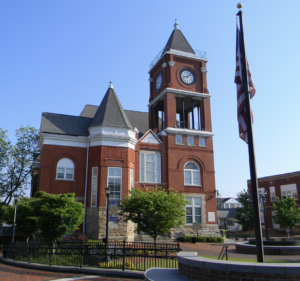 Fighting Back: A week after former President Donald Trump repeated false claims of voter fraud during a rally, Paulding County, Georgia Elections Director Deidra Holden invited him to visit her office to see the processes firsthand. The move aims to dispel misinformation and assure voters about the integrity of Georgia’s elections. “I think that people like President Trump, he needs to come to an elections office and see what’s going on and see what’s happening,” Holden said. “There’s so much misinformation and disinformation out there that this is an opportunity for us to show the people we are doing everything we can to make sure that this equipment is working properly,” Holden said. She stressed the importance of trust in the election process and how misinformation can undermine voter confidence. “Their vote is all that matters to us. That’s all of our goals at the end is that we have those secure elections that have been conducted with integrity and people can trust what we’re doing,” Holden said. Secretary of State Brad Raffensperger, who was in Paulding this week for a surprise visit to test the county’s equipment, echoed Holden’s sentiments, emphasizing the need to rebuild trust in the electoral system. “I don’t want anyone out there not showing up because they somehow think that it’s not a level playing field. It is a level playing field,” he said.
Fighting Back: A week after former President Donald Trump repeated false claims of voter fraud during a rally, Paulding County, Georgia Elections Director Deidra Holden invited him to visit her office to see the processes firsthand. The move aims to dispel misinformation and assure voters about the integrity of Georgia’s elections. “I think that people like President Trump, he needs to come to an elections office and see what’s going on and see what’s happening,” Holden said. “There’s so much misinformation and disinformation out there that this is an opportunity for us to show the people we are doing everything we can to make sure that this equipment is working properly,” Holden said. She stressed the importance of trust in the election process and how misinformation can undermine voter confidence. “Their vote is all that matters to us. That’s all of our goals at the end is that we have those secure elections that have been conducted with integrity and people can trust what we’re doing,” Holden said. Secretary of State Brad Raffensperger, who was in Paulding this week for a surprise visit to test the county’s equipment, echoed Holden’s sentiments, emphasizing the need to rebuild trust in the electoral system. “I don’t want anyone out there not showing up because they somehow think that it’s not a level playing field. It is a level playing field,” he said.
 Podcast News: In the latest episode of High Turnout Wide Margins hosts Eric Fey and Brianna Lennon speak with Missouri State Rep. Peggy McGaugh (7th District). Before being elected to the House, she served for 33 years in the Carroll County Clerk’s Office. They spoke about McGaugh’s experience, the benefits of state legislators coming from election administration backgrounds, and how clerks and state legislators can better work together.; In this episode of The Voting Booth from The American Enterprise Institute, co-hosts John Fortier and Don Palmer are joined by U.S. Election Assistance Commission Commissioner Thomas Hicks. On the Democracy Fix, Minnesota Secretary of State Steve Simon joins Issue One’s Dr. Carah Ong Whaley and Liz Cassin to discuss the challenges posed by the spread of false election information and the importance of directing voters to credible sources. On CNN’s 5 Things podcast, The Messy Business of ‘Cleaning’ Voter Rolls. As election officials around the country prepare for November’s election, a CNN investigation has found they are already being inundated with dubious complaints about inaccurate voter rolls. The group behind many of the challenges, True the Vote, has long pushed debunked voter-fraud theories. In this episode, we hear how a mobile app has empowered citizens to bring these challenges against their neighbors and look at the impact on regular voters and election administrators. In All Sides with Anna Staver, she speaks with Ken Blackwell, former Republican Ohio Secretary of State, Zack Space, former Democratic Ohio Congressman, Frank LaRose, Ohio Secretary of State and Jen Miller, executive director, League of Women Voters of Ohio about election security.
Podcast News: In the latest episode of High Turnout Wide Margins hosts Eric Fey and Brianna Lennon speak with Missouri State Rep. Peggy McGaugh (7th District). Before being elected to the House, she served for 33 years in the Carroll County Clerk’s Office. They spoke about McGaugh’s experience, the benefits of state legislators coming from election administration backgrounds, and how clerks and state legislators can better work together.; In this episode of The Voting Booth from The American Enterprise Institute, co-hosts John Fortier and Don Palmer are joined by U.S. Election Assistance Commission Commissioner Thomas Hicks. On the Democracy Fix, Minnesota Secretary of State Steve Simon joins Issue One’s Dr. Carah Ong Whaley and Liz Cassin to discuss the challenges posed by the spread of false election information and the importance of directing voters to credible sources. On CNN’s 5 Things podcast, The Messy Business of ‘Cleaning’ Voter Rolls. As election officials around the country prepare for November’s election, a CNN investigation has found they are already being inundated with dubious complaints about inaccurate voter rolls. The group behind many of the challenges, True the Vote, has long pushed debunked voter-fraud theories. In this episode, we hear how a mobile app has empowered citizens to bring these challenges against their neighbors and look at the impact on regular voters and election administrators. In All Sides with Anna Staver, she speaks with Ken Blackwell, former Republican Ohio Secretary of State, Zack Space, former Democratic Ohio Congressman, Frank LaRose, Ohio Secretary of State and Jen Miller, executive director, League of Women Voters of Ohio about election security.
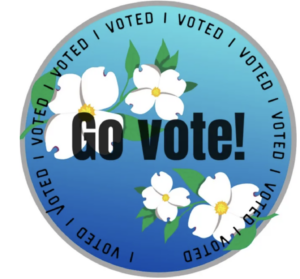 Sticker News: Congratulations to Kyariaha Maxwell, a sophomore at Cumberland County Virtual Academy for winning the inaugural Cumberland County, North Carolina “I Voted” sticker contest. Maxwell’s sticker was decided by online voting and a judge’s panel comprising members of the Cumberland County Board of Elections and Elections Director Angie Amaro. Amaro said the new sticker is the first locally designed effort. She said 300,000 had been ordered, and the stickers would be available during early voting, which starts Oct. 17, and Election Day on Nov. 5.
Sticker News: Congratulations to Kyariaha Maxwell, a sophomore at Cumberland County Virtual Academy for winning the inaugural Cumberland County, North Carolina “I Voted” sticker contest. Maxwell’s sticker was decided by online voting and a judge’s panel comprising members of the Cumberland County Board of Elections and Elections Director Angie Amaro. Amaro said the new sticker is the first locally designed effort. She said 300,000 had been ordered, and the stickers would be available during early voting, which starts Oct. 17, and Election Day on Nov. 5.
Personnel News: Kathleen Hale has been named the new executive director of the Election Center. Tammy Patrick will serve as the chief programs officer. Additionally, Heider Garcia and Wesley Wilcox have joined the board. Nicholas Ocampo is the new director of elections for Roanoke, Virginia. Amanda Cravey is the new Sebastian County, Arkansas election commissioner. Brad Garbutt has been appointed to the Shasta County, California elections advisory panel.
Ballot Measures, Legislation & Rulemaking
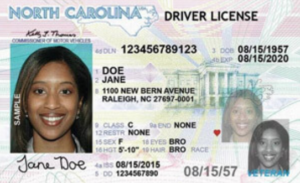 North Carolina Rulemaking: The State Board of Elections approved a dozen new IDs this week, adding the Duke Card, the Campbell student voter ID and 10 others to the list of more than 120 acceptable IDs approved for voters. Many other colleges and universities have already had IDs approved. But the board didn’t approve an electronic ID card that some UNC-Chapel Hill students use because one of the board’s Republican members objected to that option. The elections board plans to hold a meeting later this month to discuss the Chapel Hill virtual IDs in more detail, then take a vote on whether to accept them. The physical ID card used by UNC students has been approved already. Many state and government agencies have also gotten approval for their employees to be able to use their work IDs as photo identification for voting. Among those newly added this week were the North Carolina Department of Administration, Guilford County Schools and the City of Gastonia. In the primary this March, 473 voters had their ballots thrown out because of ID problems, WRAL reported, out of 1.8 million total voters.
North Carolina Rulemaking: The State Board of Elections approved a dozen new IDs this week, adding the Duke Card, the Campbell student voter ID and 10 others to the list of more than 120 acceptable IDs approved for voters. Many other colleges and universities have already had IDs approved. But the board didn’t approve an electronic ID card that some UNC-Chapel Hill students use because one of the board’s Republican members objected to that option. The elections board plans to hold a meeting later this month to discuss the Chapel Hill virtual IDs in more detail, then take a vote on whether to accept them. The physical ID card used by UNC students has been approved already. Many state and government agencies have also gotten approval for their employees to be able to use their work IDs as photo identification for voting. Among those newly added this week were the North Carolina Department of Administration, Guilford County Schools and the City of Gastonia. In the primary this March, 473 voters had their ballots thrown out because of ID problems, WRAL reported, out of 1.8 million total voters.
Legal Updates
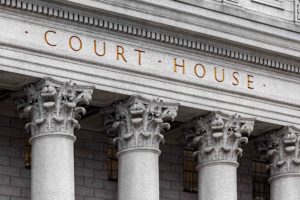 Federal Lawsuit: A group of Republican state attorneys general are suing the Biden administration over a federal effort to expand access to voter registration. The lawsuit targets an executive order issued by President Joe Biden in March 2021 that directed the heads of all federal agencies to submit proposals for their respective agencies to promote voter registration and participation through various points of contact with the public. The president issued the order as GOP-led statehouses were pushing voter suppression legislation in the aftermath of the 2020 election. The nine Republican attorneys general who filed the lawsuit in federal court argue that Biden exceeded his authority when he issued the directive, which they also say violates the US Constitution and “undermines the voter registration systems set up by the States.” “Through Executive Order 14019,” the states argue, “President Biden has sought to convert the federal bureaucracy into a voter registration organization and to turn every interaction between a federal bureaucrat and a member of the public into a voter registration pitch.” The states also claim that the executive order was “was motivated by a partisan desire to unfairly increase the Democrat vote.” They argue that the executive order and its implementation has caused them “pocketbook injuries, procedural harms, and harms to the States’ sovereign interests” by allegedly trampling on their own “ability to regulate voter registration.” The states that brought the lawsuit are Montana, Kansas, Iowa, South Dakota, Mississippi, Nebraska, North Dakota, Oklahoma, South Carolina. The case has been assigned to US District Judge Daniel Crabtree
Federal Lawsuit: A group of Republican state attorneys general are suing the Biden administration over a federal effort to expand access to voter registration. The lawsuit targets an executive order issued by President Joe Biden in March 2021 that directed the heads of all federal agencies to submit proposals for their respective agencies to promote voter registration and participation through various points of contact with the public. The president issued the order as GOP-led statehouses were pushing voter suppression legislation in the aftermath of the 2020 election. The nine Republican attorneys general who filed the lawsuit in federal court argue that Biden exceeded his authority when he issued the directive, which they also say violates the US Constitution and “undermines the voter registration systems set up by the States.” “Through Executive Order 14019,” the states argue, “President Biden has sought to convert the federal bureaucracy into a voter registration organization and to turn every interaction between a federal bureaucrat and a member of the public into a voter registration pitch.” The states also claim that the executive order was “was motivated by a partisan desire to unfairly increase the Democrat vote.” They argue that the executive order and its implementation has caused them “pocketbook injuries, procedural harms, and harms to the States’ sovereign interests” by allegedly trampling on their own “ability to regulate voter registration.” The states that brought the lawsuit are Montana, Kansas, Iowa, South Dakota, Mississippi, Nebraska, North Dakota, Oklahoma, South Carolina. The case has been assigned to US District Judge Daniel Crabtree
 Alaska: State prosecutors have charged two officials in the community of Pilot Station with illegally manipulating the results of city elections in October 2022 and October 2023. A grand jury indicted Acting Mayor Arthur Heckman Sr. and City Clerk Ruthie Borromeo on eight felonies apiece for allegedly tampering with the elections and failing to report results properly. The indictment also states that they “induced or attempted to induce an election official to fail in the official duty by force, threat, intimidation, or offers of reward.” Pilot Station is a town of about 600 people on the banks of the Yukon River in Western Alaska. The charges, first reported last week by KYUK radio, were published July 30, and both are scheduled to appear in court via Zoom on Aug. 20. According to the Alaska Beacon, until that date, limited public information is available. Senior Assistant Attorney General Jenna Gruenstein said by phone that “these are not state elections. These are local elections that are at issue.” She wasn’t able to provide details to the Beacon beyond the indictment but said, “these involved elections that either weren’t held or the ballots weren’t counted at all. … Those are the allegations.”
Alaska: State prosecutors have charged two officials in the community of Pilot Station with illegally manipulating the results of city elections in October 2022 and October 2023. A grand jury indicted Acting Mayor Arthur Heckman Sr. and City Clerk Ruthie Borromeo on eight felonies apiece for allegedly tampering with the elections and failing to report results properly. The indictment also states that they “induced or attempted to induce an election official to fail in the official duty by force, threat, intimidation, or offers of reward.” Pilot Station is a town of about 600 people on the banks of the Yukon River in Western Alaska. The charges, first reported last week by KYUK radio, were published July 30, and both are scheduled to appear in court via Zoom on Aug. 20. According to the Alaska Beacon, until that date, limited public information is available. Senior Assistant Attorney General Jenna Gruenstein said by phone that “these are not state elections. These are local elections that are at issue.” She wasn’t able to provide details to the Beacon beyond the indictment but said, “these involved elections that either weren’t held or the ballots weren’t counted at all. … Those are the allegations.”
 Arizona: Maricopa County Superior Court Judge Scott Blaney ruled the county Recorder’s Office does not have to disclose the name of low level election workers to the public. We the People Arizona Alliance, a group known for spreading election conspiracy theories, filed a lawsuit in 2022 seeking the names of people who performed signature verification on early ballots in the 2020 general election. The group said that some election workers verified signatures too quickly and it wanted to further investigate training and procedures for those workers. The Recorder’s Office declined to provide the names of low-level and temporary election workers, citing concerns that disclosure would subject those workers to threats and harassment. Maricopa County Recorder Stephen Richer, Elections Director Scott Jarrett and former Assistant Director Kristi Passarelli all testified that they and other election officials have faced frequent threats in recent years. Blaney agreed. “The Court finds that the Recorder has established in this case legitimate security concerns about public disclosure of the identities of lower level and non-managerial employees,” Blaney wrote. “The threats and harassment that these employees face are both alarming and pervasive.”
Arizona: Maricopa County Superior Court Judge Scott Blaney ruled the county Recorder’s Office does not have to disclose the name of low level election workers to the public. We the People Arizona Alliance, a group known for spreading election conspiracy theories, filed a lawsuit in 2022 seeking the names of people who performed signature verification on early ballots in the 2020 general election. The group said that some election workers verified signatures too quickly and it wanted to further investigate training and procedures for those workers. The Recorder’s Office declined to provide the names of low-level and temporary election workers, citing concerns that disclosure would subject those workers to threats and harassment. Maricopa County Recorder Stephen Richer, Elections Director Scott Jarrett and former Assistant Director Kristi Passarelli all testified that they and other election officials have faced frequent threats in recent years. Blaney agreed. “The Court finds that the Recorder has established in this case legitimate security concerns about public disclosure of the identities of lower level and non-managerial employees,” Blaney wrote. “The threats and harassment that these employees face are both alarming and pervasive.”
Republicans are asking the U.S. Supreme Court to enforce election reform laws that would prohibit Arizonans from voting for president or by mail, unless they provide proof of citizenship. Two years ago, a series of voting rights groups sued to stop the election laws passed by Republican lawmakers from going into effect, calling the legislation an effort to disenfranchise voters. The laws have been stuck in legal limbo ever since. A trial court judge partially upheld the laws in March, and the case is currently being reviewed by the 9th U.S. Circuit Court of Appeals. In July, the 9th Circuit issued a temporary stay ordering that anyone who tries to register to vote using a state form is required at the same time to provide documentary proof of citizenship, such as a driver’s license. But the appeals court recently reversed that ruling, prompting Republicans defending the law to file an emergency application for a stay with Associate Justice Elena Kagan on August 8. The stay would again allow Arizona to enforce the proof of citizenship requirement ahead of the November elections. “We just witnessed something that I’ve never even heard of and is highly irregular and unusual,” Senate President Warren Petersen (R-Gilbert) said of the 9th Circuit’s subsequent decision. “It’s unheard of. It’s disturbing really, and I think the dissenting judge really said it well; it makes them look very political, and it causes them to lose credibility. … The standard is a ‘great manifest injustice’ and come on, requiring only U.S. citizens to vote? Allowing non-citizens to vote is a manifest injustice. The court is literally doing the opposite of what their own rules are requiring them to do,” Petersen added.
Maricopa County Superior Court Judge Melissa Iyer Julian ordered lawmakers to rewrite the description of a ballot proposition to end partisan primaries in Arizona after ruling the summary was misleading. Julian ruled August 12 that a legislative panel responsible for writing summaries of ballot measures that are sent to every Arizona voter wrote a misleading description of Proposition 140, a citizen initiative also known as the Make Elections Fair Act. If voters approve it in November, the measure would create an open primary system where all candidates for federal, state and local offices would face off in a single primary election instead of segregated partisan elections. Those primaries would also include candidates who are politically unaffiliated. All registered voters would be able to choose from all the candidates in the primary, and the top vote-getters would advance to the general election, even if they don’t represent different parties.
The Maricopa County Board of Supervisors has settled a lawsuit filed by state and county Republican officials over tests that ensure the accuracy of vote tabulators before elections. The suit, filed against Maricopa County in July, claimed the county and secretary of state did not properly conduct tests of vote tabulation equipment as required by state law. Every election, logic and accuracy testing is conducted with test ballots brought in by the secretary of state — a process the public can watch online or in person. A settlement agreement signed on Aug. 12 only deals with one of those issues: claims by the Republican officials that the Secretary of State only tested Maricopa County’s “backup” machines. According to the settlement, the county “shall provide only its tabulators and accessible voting devices that the [Maricopa County Board of Supervisors] intends to deploy to early voting locations and election day vote centers.”
 Colorado: Following a week of testimony and just four hours of deliberation, a jury found former Mesa County Clerk Tina Peters guilty of four felonies and three misdemeanors out of 10 charges related to a 2021 leak of voting machine data. Peters had faced three felony counts of attempting to influence a public servant, four felony counts related to impersonation and identity theft and three misdemeanor counts of official misconduct, violation of duties and failure to comply with the secretary of state’s requirements. “This case is simply about crimes committed by her in concert with others that were designed to be a cover-up,” special deputy district attorney Robert Shapiro told the jury in closing. “This case is not about computers, it’s not about election documents, it’s about using deceit to trick public servants.” The jury largely agreed, clearing Peters on only two of the felony impersonation counts and one of the felony identity theft charges. Peters was on counts 1, 2, 4, 6, 8, 9 & 10. Counts 1, 2 and 4 have a sentencing range of 2-6 years each, Count 6: 12-18 months and Counts 8, 9 & 10: 90-364 days each. Depending on whether she’s sentenced consecutively or concurrently, Peters faces 7 to 22 years in jail.
Colorado: Following a week of testimony and just four hours of deliberation, a jury found former Mesa County Clerk Tina Peters guilty of four felonies and three misdemeanors out of 10 charges related to a 2021 leak of voting machine data. Peters had faced three felony counts of attempting to influence a public servant, four felony counts related to impersonation and identity theft and three misdemeanor counts of official misconduct, violation of duties and failure to comply with the secretary of state’s requirements. “This case is simply about crimes committed by her in concert with others that were designed to be a cover-up,” special deputy district attorney Robert Shapiro told the jury in closing. “This case is not about computers, it’s not about election documents, it’s about using deceit to trick public servants.” The jury largely agreed, clearing Peters on only two of the felony impersonation counts and one of the felony identity theft charges. Peters was on counts 1, 2, 4, 6, 8, 9 & 10. Counts 1, 2 and 4 have a sentencing range of 2-6 years each, Count 6: 12-18 months and Counts 8, 9 & 10: 90-364 days each. Depending on whether she’s sentenced consecutively or concurrently, Peters faces 7 to 22 years in jail.
 Florida: This week Chief Judge Lisa Munyon of the ninth judicial circuit presided over a trial in the lawsuit brought by one of the candidates for Orange County supervisor of elections, attorney Dan Helm. He filed a complaint in circuit court against independent candidate Cynthia Harris, claiming she did not properly and legally file to run for office. He wants her disqualified as a candidate. Helm is also suing Glen Gilzean in his capacity as the current supervisor. Gilzean is not running for election to the post, to which he was appointed by Republican Florida Gov. Ron DeSantis. Harris is set to face the winner of the Aug. 20 Democratic primary between Helm, Wes Hodge, Karen Castor Dentel and Sunshine Grund. Hodge filed a motion to join the legal action as an intervener and Munyon granted the request Tuesday. Munyon told Hodge and attorneys for Helm, Harris, and Gilzean to have proposed solutions by Thursday morning for any decision she may make to either keep Harris in the race or disqualify her. Munyon promised a ruling by the end of Friday.
Florida: This week Chief Judge Lisa Munyon of the ninth judicial circuit presided over a trial in the lawsuit brought by one of the candidates for Orange County supervisor of elections, attorney Dan Helm. He filed a complaint in circuit court against independent candidate Cynthia Harris, claiming she did not properly and legally file to run for office. He wants her disqualified as a candidate. Helm is also suing Glen Gilzean in his capacity as the current supervisor. Gilzean is not running for election to the post, to which he was appointed by Republican Florida Gov. Ron DeSantis. Harris is set to face the winner of the Aug. 20 Democratic primary between Helm, Wes Hodge, Karen Castor Dentel and Sunshine Grund. Hodge filed a motion to join the legal action as an intervener and Munyon granted the request Tuesday. Munyon told Hodge and attorneys for Helm, Harris, and Gilzean to have proposed solutions by Thursday morning for any decision she may make to either keep Harris in the race or disqualify her. Munyon promised a ruling by the end of Friday.
 Idaho: The Idaho Supreme Court on August 13 dismissed Attorney General Raúl Labrador’s challenge to Proposition 1, the ballot initiative that would create open primaries. On July 24, Labrador filed a challenge with the Idaho Supreme Court seeking to block Proposition 1 from going up for vote. Labrador alleged that signatures gatherers misled the public and fraudulently obtained signatures that were used to qualify the ballot initiative for the election. Labrador also alleged that the ballot initiative violates the Idaho Constitution’s requirement that laws only address one single subject. However, the Idaho Supreme Court dismissed Labrador’s challenge on procedural grounds on Tuesday without even holding oral arguments on the case. “Today the Idaho Supreme Court dismisses the attorney general’s petition on procedural grounds,” Idaho Supreme Court Justice Robyn M. Brody wrote in the opinion. “Allegations of fraud in the gathering of signatures in the initiative process are serious. Those allegations, however, must be adjudicated in the district court in the first instance. The attorney general’s petition fundamentally misapprehends the role of this court under the Idaho Constitution and the role of the secretary of state under the initiative laws enacted by the Idaho Legislature.” The Idaho Supreme Court also said it would not weigh in on Labrador’s allegation that the ballot initiative violates the Idaho Constitution’s single-subject requirement unless voters approve it. “…(T)hat issue will not be ripe for review, unless and until Idaho voters approve the initiative at the general election in November,” Brody wrote in the opinion.
Idaho: The Idaho Supreme Court on August 13 dismissed Attorney General Raúl Labrador’s challenge to Proposition 1, the ballot initiative that would create open primaries. On July 24, Labrador filed a challenge with the Idaho Supreme Court seeking to block Proposition 1 from going up for vote. Labrador alleged that signatures gatherers misled the public and fraudulently obtained signatures that were used to qualify the ballot initiative for the election. Labrador also alleged that the ballot initiative violates the Idaho Constitution’s requirement that laws only address one single subject. However, the Idaho Supreme Court dismissed Labrador’s challenge on procedural grounds on Tuesday without even holding oral arguments on the case. “Today the Idaho Supreme Court dismisses the attorney general’s petition on procedural grounds,” Idaho Supreme Court Justice Robyn M. Brody wrote in the opinion. “Allegations of fraud in the gathering of signatures in the initiative process are serious. Those allegations, however, must be adjudicated in the district court in the first instance. The attorney general’s petition fundamentally misapprehends the role of this court under the Idaho Constitution and the role of the secretary of state under the initiative laws enacted by the Idaho Legislature.” The Idaho Supreme Court also said it would not weigh in on Labrador’s allegation that the ballot initiative violates the Idaho Constitution’s single-subject requirement unless voters approve it. “…(T)hat issue will not be ripe for review, unless and until Idaho voters approve the initiative at the general election in November,” Brody wrote in the opinion.
 Maryland: The State Board of Elections is asking a federal appeals court to uphold a lower court decision dismissing a lawsuit intended to stall the 2024 elections in the state. In a 43-page response filed for the board August 8, Assistant Attorney General Daniel M. Kobrin wrote that U.S. District Court Judge Stephanie A. Gallagher was correct when she dismissed the lawsuit earlier this year due to a lack of standing by the groups who brought the action. He went on to say that the lawsuit failed to “raise a cognizable federal question.” “Although Maryland Election Integrity’s complaint cited federal statutes, it did not plead a ‘substantial’ federal claim, as required for federal jurisdiction to exist,” Kobrin wrote of the plaintiffs. “Some of the allegations it made in connection with federal law were mere requests for relief involving no federal claim.” The state’s response comes a month after Maryland Election Integrity LLC and Missouri-based United Sovereign Americans filed an appeal of Gallagher’s ruling in the 4th U.S. Circuit Court of Appeals in Richmond. The two groups originally filed suit against the state board of elections in March in U.S. District Court in Baltimore. That lawsuit alleged a half-dozen violations of state and federal election laws as well as the Maryland Public Information Act.
Maryland: The State Board of Elections is asking a federal appeals court to uphold a lower court decision dismissing a lawsuit intended to stall the 2024 elections in the state. In a 43-page response filed for the board August 8, Assistant Attorney General Daniel M. Kobrin wrote that U.S. District Court Judge Stephanie A. Gallagher was correct when she dismissed the lawsuit earlier this year due to a lack of standing by the groups who brought the action. He went on to say that the lawsuit failed to “raise a cognizable federal question.” “Although Maryland Election Integrity’s complaint cited federal statutes, it did not plead a ‘substantial’ federal claim, as required for federal jurisdiction to exist,” Kobrin wrote of the plaintiffs. “Some of the allegations it made in connection with federal law were mere requests for relief involving no federal claim.” The state’s response comes a month after Maryland Election Integrity LLC and Missouri-based United Sovereign Americans filed an appeal of Gallagher’s ruling in the 4th U.S. Circuit Court of Appeals in Richmond. The two groups originally filed suit against the state board of elections in March in U.S. District Court in Baltimore. That lawsuit alleged a half-dozen violations of state and federal election laws as well as the Maryland Public Information Act.
 Michigan: U.S. Magistrate Judge Moxila A. Upadhyaya disqualified Michigan attorney Stefanie Lambert from representing former Overstock CEO Patrick Byrne in a federal defamation suit seeking damages against him for spreading election misinformation. Byrne was sued by Dominion Voting Systems, an elections equipment company used by many Michigan counties that was the subject of several conspiracy theories following the 2020 election after human error led to an initial results reporting error in Antrim County. Attorneys for Dominion petitioned to have Lambert removed from the case after she released thousands of confidential case documents — in violation of court orders — to Barry County Sheriff Dar Leaf, who then shared them widely on social media. In a 62-page opinion Upadhyaya ruled in Dominion’s favor, finding that Lambert “deliberately violated multiple court rules and orders and continues to do so despite having had ample warning of the consequences,” concluding that the situation is “the rare case in which disqualification is warranted.”
Michigan: U.S. Magistrate Judge Moxila A. Upadhyaya disqualified Michigan attorney Stefanie Lambert from representing former Overstock CEO Patrick Byrne in a federal defamation suit seeking damages against him for spreading election misinformation. Byrne was sued by Dominion Voting Systems, an elections equipment company used by many Michigan counties that was the subject of several conspiracy theories following the 2020 election after human error led to an initial results reporting error in Antrim County. Attorneys for Dominion petitioned to have Lambert removed from the case after she released thousands of confidential case documents — in violation of court orders — to Barry County Sheriff Dar Leaf, who then shared them widely on social media. In a 62-page opinion Upadhyaya ruled in Dominion’s favor, finding that Lambert “deliberately violated multiple court rules and orders and continues to do so despite having had ample warning of the consequences,” concluding that the situation is “the rare case in which disqualification is warranted.”
 Missouri: Circuit Judge Cotton Walker has ruled that ballot language written by lawmakers for a proposed constitutional amendment stating “only citizens of the United States” can vote and banning ranked-choice voting is fair and should be on the Nov. 5 ballot without changes. The “fair ballot language” summary written by Secretary of State Jay Ashcroft also correctly conveys the central features of the measure, which will be Amendment 7 on the ballot, Walker wrote in an 11-page decision. The summary statement for the proposal, Walker wrote, “is not untrue or partial, and it does not use language that is intentionally argumentative or likely to create prejudice for the measure nor does it incorrectly describe SJR78.” Two voters, one from St. Louis and one from Webster Groves, sued over the language, arguing that it is imprecise in its references to the current legal status of non-citizen voting and omits the fact that it is currently illegal in Missouri for non-citizens to vote. The lawsuit named legislative leaders and Ashcroft as defendants in their official capacity for the 50-word summary written by lawmakers and the language intended to give a full description written by Ashcroft.
Missouri: Circuit Judge Cotton Walker has ruled that ballot language written by lawmakers for a proposed constitutional amendment stating “only citizens of the United States” can vote and banning ranked-choice voting is fair and should be on the Nov. 5 ballot without changes. The “fair ballot language” summary written by Secretary of State Jay Ashcroft also correctly conveys the central features of the measure, which will be Amendment 7 on the ballot, Walker wrote in an 11-page decision. The summary statement for the proposal, Walker wrote, “is not untrue or partial, and it does not use language that is intentionally argumentative or likely to create prejudice for the measure nor does it incorrectly describe SJR78.” Two voters, one from St. Louis and one from Webster Groves, sued over the language, arguing that it is imprecise in its references to the current legal status of non-citizen voting and omits the fact that it is currently illegal in Missouri for non-citizens to vote. The lawsuit named legislative leaders and Ashcroft as defendants in their official capacity for the 50-word summary written by lawmakers and the language intended to give a full description written by Ashcroft.
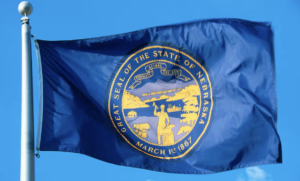 Nebraska: The Nebraska Supreme Court is set to hear a lawsuit seeking to force Secretary of State Bob Evnen to register voters with past felony convictions under a new state law. Civic Nebraska and voting rights advocates announced the lawsuit July 29. Oral arguments are set for Aug. 28 in a case that revolves around whether the Legislature can remove the voting rights disqualification for felons after they’ve completed their sentence. Lawmakers passed two versions: Legislative Bill 53 in 2005, which established a two-year waiting period after felons have completed their sentence, and LB 20 in April, to remove the disqualification as soon as they have served their sentence. LB 20, from State Sen. Justin Wayne of Omaha, passed 38-6 and took effect July 19, three months after the Legislature adjourned. But two days before the law took effect, on July 17, Evnen directed county election officials not to register new voters who had felony convictions, unless they previously had their voting rights restored under the 2005 law, with the waiting period. The lawsuit argues that only courts can stop a law, that the will of voters and lawmakers is being ignored and that Evnen’s action threatened people’s freshly restored rights.
Nebraska: The Nebraska Supreme Court is set to hear a lawsuit seeking to force Secretary of State Bob Evnen to register voters with past felony convictions under a new state law. Civic Nebraska and voting rights advocates announced the lawsuit July 29. Oral arguments are set for Aug. 28 in a case that revolves around whether the Legislature can remove the voting rights disqualification for felons after they’ve completed their sentence. Lawmakers passed two versions: Legislative Bill 53 in 2005, which established a two-year waiting period after felons have completed their sentence, and LB 20 in April, to remove the disqualification as soon as they have served their sentence. LB 20, from State Sen. Justin Wayne of Omaha, passed 38-6 and took effect July 19, three months after the Legislature adjourned. But two days before the law took effect, on July 17, Evnen directed county election officials not to register new voters who had felony convictions, unless they previously had their voting rights restored under the 2005 law, with the waiting period. The lawsuit argues that only courts can stop a law, that the will of voters and lawmakers is being ignored and that Evnen’s action threatened people’s freshly restored rights.
 Nevada: Two Washoe County election lawsuits demanding hand counts and individual inspection of ballots have ended with no action taken. One by county commission candidate Mark Lawson was dismissed last week. The other, by school board candidate Paul White, involved a filing Monday where he asked the court to dismiss his case. District Court Judge Kathleen Drakulich had written last month that she felt White “fails to show that he enjoys a likelihood of success on the merits of his Complaint.” The decision for White — and by extension Lawson because their lawsuits were the same — then became whether to appeal the judge’s rejection of his preliminary request, pursue his claims further with the same judge or call it a day. Mark Hutchings represented White and Lawson in the lawsuits. “The point of the case was to get a ‘recount,’ as required by statute,” he told the Reno Gazette Journal by email. The Secretary of State’s Office did not immediately respond to request for comment. “We are pleased with the outcome and believe that dismissal was the only
Nevada: Two Washoe County election lawsuits demanding hand counts and individual inspection of ballots have ended with no action taken. One by county commission candidate Mark Lawson was dismissed last week. The other, by school board candidate Paul White, involved a filing Monday where he asked the court to dismiss his case. District Court Judge Kathleen Drakulich had written last month that she felt White “fails to show that he enjoys a likelihood of success on the merits of his Complaint.” The decision for White — and by extension Lawson because their lawsuits were the same — then became whether to appeal the judge’s rejection of his preliminary request, pursue his claims further with the same judge or call it a day. Mark Hutchings represented White and Lawson in the lawsuits. “The point of the case was to get a ‘recount,’ as required by statute,” he told the Reno Gazette Journal by email. The Secretary of State’s Office did not immediately respond to request for comment. “We are pleased with the outcome and believe that dismissal was the only
 Texas: Investigators with the Texas Rangers and the Harris County District Attorney’s office found no evidence of attempts to sway the county’s November 2022 election, officials said this week. In November 2022, some polling locations saw shortages of paper ballots and malfunctioning voting equipment. Some locations opened later in the day, resulting in longer wait times for voters. Those irregularities drove more than 20 local Republican candidates to contest the election results — and Republican lawmakers in the Texas Legislature to force the county to dissolve its elections administration office. A criminal probe initiated by Harris County District Attorney Kim Ogg into irregularities around the 2022 election found no evidence of a campaign to suppress voter turnout or influence the election’s outcome, officials said. Paper ballot shortages weren’t the result of deliberate attempts to unduly sway the election results, Ogg said. Those shortages came about, she said, because an election official in charge of making sure each polling place had enough paper ballots failed to do so because he was working two full-time jobs at the same time. Darryl Blackburn, a former data analyst at the now-shuttered Harris County Elections Department, has been charged with five counts of tampering with government documents, a state jail felony punishable by up to two years in jail and a $10,000 fine; and one count of theft, a third-degree felony that carries a potential prison sentence between two and 10 years and a fine of up to $10,000. Investigators said they found no evidence that Blackburn intended to influence the outcome of the November 2022 elections.
Texas: Investigators with the Texas Rangers and the Harris County District Attorney’s office found no evidence of attempts to sway the county’s November 2022 election, officials said this week. In November 2022, some polling locations saw shortages of paper ballots and malfunctioning voting equipment. Some locations opened later in the day, resulting in longer wait times for voters. Those irregularities drove more than 20 local Republican candidates to contest the election results — and Republican lawmakers in the Texas Legislature to force the county to dissolve its elections administration office. A criminal probe initiated by Harris County District Attorney Kim Ogg into irregularities around the 2022 election found no evidence of a campaign to suppress voter turnout or influence the election’s outcome, officials said. Paper ballot shortages weren’t the result of deliberate attempts to unduly sway the election results, Ogg said. Those shortages came about, she said, because an election official in charge of making sure each polling place had enough paper ballots failed to do so because he was working two full-time jobs at the same time. Darryl Blackburn, a former data analyst at the now-shuttered Harris County Elections Department, has been charged with five counts of tampering with government documents, a state jail felony punishable by up to two years in jail and a $10,000 fine; and one count of theft, a third-degree felony that carries a potential prison sentence between two and 10 years and a fine of up to $10,000. Investigators said they found no evidence that Blackburn intended to influence the outcome of the November 2022 elections.
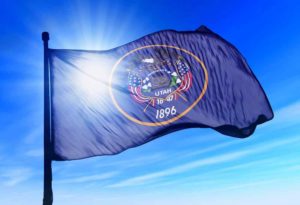 Utah: The Utah Supreme Court was unswayed by Colby Jenkins’ claims that southern Utah voters’ rights were denied when mail processing routed their ballots through Las Vegas, missing the postmark deadline and making them ineligible to be counted. Down by just 176 votes following a recount, the plea to the state’s high court was Jenkins’ last chance at trying to overtake incumbent Rep. Celeste Maloy in the 2nd Congressional District’s Republican primary. The decision released this week and authored by Chief Justice Matthew Durrant found that Jenkins “falls well short” of making his case that county clerks should count 1,171 by-mail ballots that were disqualified because they missed the state’s deadline for postmarking, which falls one day before Election Day. enkins claimed in his lawsuit that the state’s postmark requirement was unconstitutional because voters are treated differently based on where their mail is processed, and that relying on the U.S. Postal Service to postmark a by-mail ballot interferes with the right to vote. However, the justices found that Jenkins’ case did not adequately support either of those arguments. Quoting a 2019 ruling by the court, Durrant wrote that a party “may not simply point toward a pile of sand and expect the court to build a castle.”
Utah: The Utah Supreme Court was unswayed by Colby Jenkins’ claims that southern Utah voters’ rights were denied when mail processing routed their ballots through Las Vegas, missing the postmark deadline and making them ineligible to be counted. Down by just 176 votes following a recount, the plea to the state’s high court was Jenkins’ last chance at trying to overtake incumbent Rep. Celeste Maloy in the 2nd Congressional District’s Republican primary. The decision released this week and authored by Chief Justice Matthew Durrant found that Jenkins “falls well short” of making his case that county clerks should count 1,171 by-mail ballots that were disqualified because they missed the state’s deadline for postmarking, which falls one day before Election Day. enkins claimed in his lawsuit that the state’s postmark requirement was unconstitutional because voters are treated differently based on where their mail is processed, and that relying on the U.S. Postal Service to postmark a by-mail ballot interferes with the right to vote. However, the justices found that Jenkins’ case did not adequately support either of those arguments. Quoting a 2019 ruling by the court, Durrant wrote that a party “may not simply point toward a pile of sand and expect the court to build a castle.”
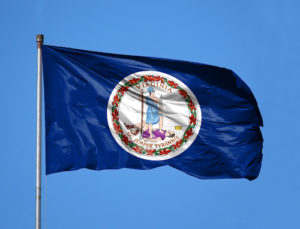 Virginia: A federal court has thrown out a lawsuit challenging Virginia Gov. Glenn Youngkin’s process for restoring voting rights for people convicted of a felony, ruling that the suit was filed under an incorrect section of law but also seeming to criticize the governor’s use of power by comparing it to that of a monarch. Virginia is the only state in the country that permanently strips civil rights from anyone convicted of a felony and empowers only the governor to restore rights on a case-by-case basis. Youngkin has tightened it up, restoring rights to a fraction of the number of people who had rights restored in the past few years. Critics say he also has not set out clear criteria for why some cases are approved and some are denied. “No one would suggest that Governor Youngkin’s ‘fully implemented’ system is transparent, or that it gives the appearance of fairness,” the U.S. District Court for the Eastern District of Virginia found in a ruling issued August 7 and signed by District Judge John A. Gibney Jr. Adding that Youngkin’s method of receiving petitions for relief and deciding whether to rule on them without any explanation is “much like a monarch,” the court said that nonetheless, “transparency and the appearance of fairness are not the issues in this case.”
Virginia: A federal court has thrown out a lawsuit challenging Virginia Gov. Glenn Youngkin’s process for restoring voting rights for people convicted of a felony, ruling that the suit was filed under an incorrect section of law but also seeming to criticize the governor’s use of power by comparing it to that of a monarch. Virginia is the only state in the country that permanently strips civil rights from anyone convicted of a felony and empowers only the governor to restore rights on a case-by-case basis. Youngkin has tightened it up, restoring rights to a fraction of the number of people who had rights restored in the past few years. Critics say he also has not set out clear criteria for why some cases are approved and some are denied. “No one would suggest that Governor Youngkin’s ‘fully implemented’ system is transparent, or that it gives the appearance of fairness,” the U.S. District Court for the Eastern District of Virginia found in a ruling issued August 7 and signed by District Judge John A. Gibney Jr. Adding that Youngkin’s method of receiving petitions for relief and deciding whether to rule on them without any explanation is “much like a monarch,” the court said that nonetheless, “transparency and the appearance of fairness are not the issues in this case.”
 Wyoming: The Wyoming Republican Party filed a lawsuit August 8 against Laramie County Clerk Debra Lee over a flawed voting machine test that was performed earlier this week. The Laramie County GOP already filed a complaint with the Wyoming Secretary of State’s Office on August 6 over the issue. The Wyoming GOP executive committee decided to initiate the lawsuit in order “to take all measures to restore integrity in the election.” The Wyoming GOP is asking the district court “to declare that the electronic tabulating machines have not been properly tested and issue an injunction to safeguard the integrity of our primary election,” according to a Wyoming GOP news release sent out early Thursday. The purpose of the injunction is to either retest the voting tabulating machines or “arrive at another counting method, such as hand counting (ballots) that is allowed by state statute,” Love said. Since it is now past the two-week deadline, Eathorne said the “only outstanding option” is to hand-count ballots. However, Ervin said the likelihood of switching to a hand-count “is practically zero.” The purpose of the two-week window is to reconcile any issues or concerns after the first test, he said.
Wyoming: The Wyoming Republican Party filed a lawsuit August 8 against Laramie County Clerk Debra Lee over a flawed voting machine test that was performed earlier this week. The Laramie County GOP already filed a complaint with the Wyoming Secretary of State’s Office on August 6 over the issue. The Wyoming GOP executive committee decided to initiate the lawsuit in order “to take all measures to restore integrity in the election.” The Wyoming GOP is asking the district court “to declare that the electronic tabulating machines have not been properly tested and issue an injunction to safeguard the integrity of our primary election,” according to a Wyoming GOP news release sent out early Thursday. The purpose of the injunction is to either retest the voting tabulating machines or “arrive at another counting method, such as hand counting (ballots) that is allowed by state statute,” Love said. Since it is now past the two-week deadline, Eathorne said the “only outstanding option” is to hand-count ballots. However, Ervin said the likelihood of switching to a hand-count “is practically zero.” The purpose of the two-week window is to reconcile any issues or concerns after the first test, he said.
Analysis & Opinions This Week
National Opinions: Ranked choice voting | Election deniers | Voting Rights Act, II | Voting rights | Poll workers | Accessibility
Alabama: Turnout
Alaska: Ranked choice voting
Arizona: Ballot measure
California: Motor voter
Florida: Miami-Dade County | Pinellas County | Duval County | DeSoto County | Election workers
Georgia: Voting rights | Rulemaking | State Board of Elections, II | Election deniers
Idaho: Ballot measure
Kansas: Polling places | Voter registration
Maine: Voting rights
Maryland: Open primaries
Michigan: Election reform
Mississippi: Disenfranchisement
New Hampshire: Voting rights
Nebraska: Voting rights
Nevada: Measure 3
New Mexico: Poll workers
Pennsylvania: Free & fair elections | Ballot corrections
Texas: Voter education
Virginia: Election security, II | Poll workers
Upcoming Events
Resources to Support Election Worker Resilience: This webinar is to introduce The Elections Group’s Wellness Resilience in a Box resources as well as The Carter Center’s wellness guide Taking Care of Yourself to Serve Others to a broad network of election workers. These materials are intended to provide resources to election officials to support their mental and physical well-being and that of their colleagues and staff. The Elections Group launched their resilience resources in April 2024, while The Carter Center issued a first edition of Taking Care of Yourself to Serve Others in 2022. This second edition includes new resources and tools that have been developed for election administrators since the initial launch. When: Aug. 20, 12pm Eastern. Where: Online
The Primary Solution: A Conversation with Nick Troiano: In his book, “The Primary Solution,” Unite America Executive Director Nick Troiano identifies partisan primaries as one of the main drivers of political polarization and gridlock in the U.S. Because primaries are controlled at the state level, Troiano suggests that reforming the primary process presents a great opportunity to make substantive progress in pursuit of a more democratic and representative form of self-government. Unlike Electoral College reform or national voting rights legislation, ending partisan primaries does not require a constitutional amendment or an act of Congress. In fact, states like Alaska and California have already taken steps to eliminate partisan dominance of the primary process, by instituting reforms like top-two primaries and ranked choice voting. On August 22, 2024, from 2-3 p.m. ET, Campaign Legal Center Senior Vice President Paul Smith will host author and Unite America Executive Director Nick Troiano for a discussion on his book, “The Primary Solution: Rescuing Our Democracy from the Fringes.” When: August 22, 2pm Eastern. Where: Online
Closing the Accessibility Gap: Voting in 2024 and Beyond: On August 28, join the U.S. Election Assistance Commission (EAC) for “Closing the Accessibility Gap: Voting in 2024 and Beyond” in the agency’s hearing room. This event will be held in person and live streamed on EAC’s YouTube Channel. Please only register if planning to attend in person. The EAC will host panels featuring election administrators, EAC staff, and election subject matter experts. They will discuss progress made on serving voters with disabilities and new advances in technology, best practices, and funding opportunities to support accessibility efforts. When: August 28, 4pm Eastern. Where: Online
Election Center Annual Conference: The Election Center National Conference will be convening at the Marriott Renaissance Center. CERA Class Dates: Saturday, Sept 7 – Sunday, Sept 8, 2024. Committee Meetings and Evening Reception: Sunday, Sept 8, 2024. Conference Dates: Monday, Sept 9 – Tuesday, Sept 10, 2024. Optional Tour: Detroit Election Facilities – Wednesday, Sept 11, 2024. We will honor the winners of the Election Center’s acclaimed Professional Practices Papers’ Program on Tuesday, Sept 10. All of the 2024 best practices submissions will be posted on the Election Center website post conference. Help us celebrate the 2024 CERA/CERV graduates at the graduation ceremony and hosted luncheon on Tuesday, Sept 10. The Vendor educational exhibits featuring elections suppliers and manufacturers will be available beginning Sunday and continuing through Tuesday. The room block at the Marriott Renaissance Center will sell out quickly so do not delay in making hotel reservations. Additional information can be found on the registration page. One night deposit required. When: Sept. 7-11. Where Detroit
National Voter Registration Day: National Voter Registration Day is a nonpartisan civic holiday dedicated to celebrating our democracy. Since its kickoff in 2012, the holiday and its team of thousands of Partners have worked to get over 5 million Americans registered to vote in time for their next trip to the ballot box. Celebrated each September, National Voter Registration Day involves dedicated Partners of every stripe from all over the country hitting the streets for a single star-spangled awesome day of coordinated field, digital, and media action focused squarely on growing our shared democracy. When: September 17. Where: Everywhere.
National Voter Education Week: National Voter Education Week (NVEW) is an open-source and nonpartisan campaign to help voters bridge the gap between registering to vote and actually casting a ballot. During this week of interactive education, voters have the opportunity to find their polling location, understand their ballot, make a plan to vote in person or remotely, and inspire others to get involved. NVEW strives to help voters overcome common barriers to become confident voters and ambassadors of voting in their own communities for every election. When: Oct. 7-11. Where: Everywhere.
Vote Early Day: Vote Early Day is a nonpartisan movement of media companies, businesses, nonprofits, election administrators, and creatives working to ensure all Americans have the tools to vote early. Vote Early Day was founded by MTV as a new civic holiday focused on helping every voter know how, where, and when they can vote early. Launched in the midst of a global pandemic, Vote Early Day became a critical resource to ensure no voter had to choose between their health and casting their ballot. In its first celebration, Vote Early Day attracted 134 premier partners and 2,700 general partners from every state in the nation. Over 3,000,000 voters cast their ballots on Vote Early Day alone. When: October 29. Where: In states that allow early voting
Election Hero Day: Election Hero Day recognizes the important work and contributions of poll workers, election administrators, and clerks to ensure efficient and secure elections. Join business leaders, elected officials, nonprofit leaders, and citizens from around the country the day before Election Day to celebrate these heroes of our democracy. When: November 4. Where: Everywhere.
2024 Elections Summit: In an electoral landscape unlike any other, how can we harness this period of rapid change to support the Americans at the front lines of our democracy and build a more resilient electoral system for generations to come? Register and join BPC at our 2024 Elections Summit on Wednesday, December 4, to reflect on the state of U.S. elections with experts from across the country. Hear from practitioners, policymakers, thought leaders, and journalists, who will share lessons learned from 2024 and advance ideas to further strengthen and secure our democracy. This event is co-hosted by BPC and BPC Action and has been designed to meet Congressional Ethics guidelines for a widely attended event. When: December 4, 8am to 5pm Eastern. Where: Online and Washington, DC.
Job Postings This Week
electionlineWeekly publishes election administration job postings each week as a free service to our readers. To have your job listed in the newsletter, please send a copy of the job description, including a web link to mmoretti@electionline.org. Job postings must be received by 5pm on Wednesday in order to appear in the Thursday newsletter. Listings will run for three weeks or till the deadline listed in the posting.
Administrative Assistant, Illinois State Board of Elections– Under the general supervision of the Deputy Director of Human Resources, the Administrative Assistant serves as the primary receptionist for the Springfield Office, greeting and providing information to the public concerning services and operations of the agency; provides direct administrative support to the Administrative Services division. Serves as the primary timekeeper for the agency. Serves as backup to the Facility Services Manager as it relates to processing and distributing incoming mail. Assists with processing invoices into SAP, as needed. Essential Function 1: Serves as a receptionist in the Springfield office of the State Board of Elections providing information to the public concerning services and operations of the Agency; greets and assists callers including government officials, members of the press and the general public. Essential Function 2: Serves as Agency timekeeper; responsible for all aspects of agency timekeeping in both the Springfield and Chicago offices. Duties include, but are not limited to, collecting and entering employee monthly timesheets into Central Time and Attendance System (CTAS); updating timekeeping records, distributing employee monthly time reports; and addressing questions or concerns about time records with employees, Deputy Director of Human Resources, and/or supervisor. Essential Function 3: Assists with processing all incoming mail and deliveries by running security scans, date stamping and compiling for each division for distribution. Receives and assures accuracy of the shipping records and proper storage of office supplies; conducts inspection of goods received. Essential Function 4: Assist the Administrative Division with various projects which includes but not limited to; scanning documents, provides clerical support through means of typing from rough draft letters, memos, reports, and other documents; assists with the divisions audit cycles, on an as needed basis, assists the fiscal team in processing and ensuring timely completion of all SBE invoice and bill processing procedures through the use of specialized computer applications, databases, and programs. Essential Function 5: Responsible for the management of the agencies Webmaster inbox and distributing to the appropriate staff. Exercises judgment in answering general inquiries regarding voter registration, publications, candidate information, filing dates, using judgment in referring the public to the proper source of information. Essential Function 6: Responsible for enforcing the agencies visitor procedures; assigning the appropriate visitor badges to the public and ensuring visitors are signing in and out with the agencies log book. Performs other duties as assigned or required which are reasonably within the scope of duties enumerated above. Salary: Starting Salary: $3,334.00 per month. Deadline: August 19. Application: For the complete job listing and to apply, click here.
Cybersecurity Junior Analyst, Palm Beach County, Florida– The Cybersecurity Junior Analyst is responsible for monitoring the organization’s log aggregation tools and triage suspicious activity or detection alerts generated by the security controls implemented within the Supervisor of Elections Office network environment. Additionally, this position will serve as the first line of defense and response for identified security events in accordance with the Information Security Policy, and cybersecurity procedures. Candidate must be organized and personable with a great attitude, be able to work well in a team environment, calmly respond to identified security incidents, and meet deadlines under pressure. Excellent work ethic, including consistent performance, integrity, reliability, and attendance, is a must. Candidate must be detail-oriented and understand the importance of security and safety for all. Must be available 24/7 365, be able to handle simultaneous projects, be a self-starter, and remain informed on emerging threats and technologies. Application: For the complete job listing and to apply, click here.
Departmental Analyst, Security and Standards Section, Michigan Dept. of State– This position serves as an analyst in the Security and Standards section and will serve as recognized resource for creating or changing election administration materials for clerks and vendors based on changes to the Michigan Election Law. This position will gather data from election officials to determine program needs and coordinate with Election Administration staff on development of section programs; assist with the oversight of Michigan’s over 1,600 county and local election officials in the performance of their duties to ensure proper practices and procedures; and provide support for section programs, such as assisting with audits and recounts. This position will require some travel. Salary: $49,712.00 – $84,115.20 Annually. Deadline: August 22. Application: For the complete job listing and to apply, click here.
Department Analyst Trainee, Filing & Canvassing Section, Michigan Dept. of State –This position will work to improve integrity and transparency in state government by enforcing the disclosure of finances of candidates and elected officials in state government. This person will review financial reports that may expose potential conflicts of interests of those serving in positions of authority. This position serves as the Financial Disclosure Filings Analyst within the Bureau of Elections, Michigan Department of State. The Section is responsible for administering and enforcing the Personal Financial Disclosure Act, Lobbyist Registration Act, and Michigan Election Law. The Analyst will support the Section’s functions through research and analysis of disclosure reports, personal finance statements, and lobby expenditure reports, with emphasis on working to address deficiencies and correct noncompliant filings and take enforcement actions when required. This position will also develop and update training materials and user manuals; and providing training to the regulated community. Salary: $47,923.20 – $77,916.80 Annually. Deadline: August 25. Application: For the complete job listing and to apply, click here.
Deputy City Clerk, North Las Vegas, Nevada— Under general supervision, performs specialized administrative and technical work related to the operation of the Office of the City Clerk. Prepares, processes and distributes City Council Regular, Special and Redevelopment agendas: publishes, mails, and posts agendas as required by the Open Meeting Law. Maintains agenda mailing list. Maintains invocation log and schedules for the City Council meetings. Prepares correspondence including memos to department directors and letters to applicants, representatives and property owners describing the action taken at the various City meetings. Confirms documentation needed on all contracts approved by the City Council and advises contractors of the requirements. Obtains City signatures as necessary. Follows-up on contract expiration dates and notifies appropriate department staff. Attends bid openings. Prepares and distributes meeting minutes, action reports, and summary minutes of public meetings. Publishes, mails, and posts public hearing notices as required by the Open Meeting Law. Prepares City Council Regular, Special and Redevelopment meeting follow-up letters, memos and final action notices; provides administrative support for City Council, commissions, committees, and boards. Performs all related duties in compliance with Nevada Revised Statutes, Nevada Administrative Code and North Las Vegas Municipal Code. Responds to inquiries from the public regarding procedures, activities and other matters that require knowledge of the department’s operations. Ordinance follow-up and log maintenance. Administers agreements which do not need to be approved by City Council. Processes vacations of streets and rights-of-way and annexations; processes bonds, both financial and construction. Responsible for preparing daily, monthly, and annual statistical reporting. Assists in producing election and election related brochures and materials in all necessary languages, including requirements, important dates, methods and means of voting opportunities and necessary documentary evidence required by federal law; acts as filing officer for candidate filing, applications and expense reports. Receives payment from the public in the form of cash, check or money orders; utilizes appropriate cashiering procedures for accepting money, safeguarding the received money and accurately balancing at the end of each day. Performs other related duties as assigned. Salary: $27.01- $42.59/hr Application: For the complete job listing and to apply, click here.
Election Protection Hotline Specialist, Lawyers’ Committee for Civil Rights Under Law– Are you passionate about safeguarding democratic processes? Join us as an Election Protection Hotline Specialist! This pivotal role involves collaborating with hundreds of legal volunteers to address voter concerns reported to the 866-OUR-VOTE hotline. As part of our dynamic hotline infrastructure team, you’ll be at the forefront of managing day-to-day operations. Expect a fast-paced environment, multitasking, and a commitment to early mornings, evenings, and weekends. Embrace the opportunity to learn and employ cutting-edge technology. Responsibilities of the Election Protection Hotline Specialist include but are not limited to: Support the Election Protection contact center, ensuring top-notch assistance to voters using the 866-OUR-VOTE hotline. Organize schedules and workflows for numerous legal volunteers, ensuring exceptional assistance and collecting essential data. Craft volunteer communications such as newsletters and emails, and promptly respond to volunteer inquiries Maintain proper staffing levels based on anticipated call volumes and direct volunteers to necessary resources. Aid volunteers with technical queries related to Twilio, Rocket Chat, Okta, and troubleshoot connectivity and login issues. Collaborate on updating voting rights reference materials and conduct volunteer training. Conduct research to enhance resources addressing caller questions and update volunteer references.Monitor interactions in the Election Protection database to ensure information accuracy and identify trends. Create daily reports summarizing call data to inform Election Protection coalition activities.Identify and engage volunteers for leadership roles and assist in post-election analysis. Application: For the complete job listing and to apply, click here.
Elections Public Records Officer & Project Manager, King County, Washington– The Department of Elections is searching for an energetic and resourceful professional who likes to get stuff done. The Elections Public Records Officer & Project Manager in the Elections Department combines an exciting environment with the opportunity to cultivate talents and apply a variety of skills. The ideal candidate will thrive in an innovative, fast-paced environment and will not hesitate to roll up both sleeves, work hard, have fun, and get the job done. About the position: This position will provide coordination within Elections for ensuring the utmost diligence and attention is paid to coordinating and managing public records requests and gathering of records. This position will also manage and implement various projects within Elections. Salary: $42.94 – $54.43 Hourly. Deadline: Aug. 26. Application: For the complete listing and to apply, click here.
Executive Director, Common Cause Georgia– We are looking for a collaborative and visionary leader to lead our Georgia team at Common Cause, promoting the national agenda at the state level; fostering a strong, sustainable organization; leading winning public policy campaigns through policy analysis, research, lobbying, litigation, grassroots organizing, sophisticated communications and building strong and diverse coalitions. The Executive Director will have the opportunity to envision a strategic approach for what our work looks like in Georgia and develop programs to achieve that vision. This is a unique opportunity to be a leading voice at the center of advancing democracy reforms in the state, while also expanding our membership base and managing a high-performing team. This role reports to the Director of State Operations and will be located in Atlanta, GA. We hope our new Executive Director, Georgia can join us in October! Salary: $110,000 – $130,000 a year Application: For the complete job listing and to apply, click here.
Field Operations Coordinator, Hays County, Texas– Reporting directly to Election Network Engineer, responsible for overseeing the inventory, distribution, maintenance, warehouse storage, and logistics of all equipment, voting ballots, and department assets for Hays County Elections Department. Responsible for identifying and reserving polling sites including overseeing the coordination of all polling site compliance and usage. Ensures polling locations follow the Texas Election Code for early voting and election day. Oversees the day-to-day tasks of the election technicians’ program. Salary: $46,378 – $50,678. Annually Application: For the complete job listing and to apply, click here.
Investigations Specialist (Compliance Specialist 2), Oregon Secretary of State’s Office– We are recruiting for individuals to join our Elections team. In this role, you will help investigate possible violations of Oregon election laws and rules. This is accomplished in part by, but not limited to: Reviewing investigation requests/complaints alleging possible violations of Oregon election laws/rules. Evaluating and determining whether the division should proceed with an investigation. Conducting thorough investigations into possible election law violations. Recommending Division action and outcome of cases. Assessing civil penalties for non-compliance with Oregon election laws/rules. Explaining election laws and rules. Answering the public’s questions about registering to vote and voting. Salary: $5,079- $7,784/month-pers; $5,385 – $8,252/month/non-pers. Application: For the complete job listing and to apply, click here.
IT Assistant Manager, Palm Beach County, Florida– The Assistant IT Manager plays a supportive role in the smooth operation of the IT department, ensuring that both the technical infrastructure and the team are aligned with the organization’s goals. This position involves collaborating closely with the Election Technology Director to oversee the implementation of technology solutions that meet the needs of the organization. The Assistant IT Manager helps maintain an efficient and effective IT environment. Oversee daily operations of the IT department, including help desk operations and performance, troubleshooting issues, and ensuring efficient workflow. Hold department meetings and provide weekly performance summary. Manage IT projects under the direction of the Election Technology Director, ensuring timely completion, budget requirements, and organizational needs. Enforce IT policies and procedures to ensure data security, network access, and system availability. Assist in the management of IT staff by developing skills, coaching, and communicating job expectations. Coordinate vendor renewals, assist with IT budget development, and manage grant applications. Evaluate and assist in maintaining the organization’s disaster recovery and business continuity plans for IT. Assist with IT Public Records requests research and fulfillment. Assist the Election Technology Director in all facets of IT operations. Lead projects and mentor team members. Application: For the complete job listing and to apply, click here.
Manager of the Office of the Mayor and City Council/City Clerk, Moreno Valley, California– Located in the western portion of Riverside County, the beautiful City of Moreno Valley is a small, progressive and welcoming town boasting big city amenities! Solid growth has propelled Moreno Valley to its position as the second-largest city in Riverside County and fourth largest in the Inland Empire. The City is evolving from a bedroom community to one that is successfully attracting new business and fostering well-managed growth to create a superb quality of life for residents and visitors to enjoy. The City of Moreno Valley is a general law city that operates under a Council-Manager form of government. The City Council appoints the City Manager, the City Attorney, and the City Clerk. The new Manager of the Office of the Mayor and City Council/City Clerk will join a thriving executive team which works in tandem to deliver quality services in a transparent and effective manner. As an officer of the City of Moreno Valley and under administrative direction of the Mayor and City Council, the City Clerk exercises direct supervision over an assigned staff of eight(8) full time equivalent positions in accordance with the City’s Personnel Rules and Regulations. The City of Moreno Valley is looking for a well-qualified and compassionate City Clerk who has the ability to maintain the City’s high level of quality customer service. Candidates who are innovative, oriented toward continuous improvement, and committed to collaborating alongside a highly functioning executive team, are desired. The City is looking for strong minded individuals who embrace modern practices and approaches to problem solving and who have experience with the Brown Act, Roberts Rules of Order, parliamentary procedures, and other rules governing the notice and conduct of public hearings. Salary: 131,185.60 – $208,915.20. Deadline: August 23. Application: For the complete job listing and to apply, click here.
Operations Associate, NASED– A part-time (approximately 20 hours per week), fully remote, Operations Associate for a small nonpartisan, nonprofit membership association. Reporting to the Executive Director, this new role will support all the organization’s operational needs. The responsibilities of this position will include, but are not limited to, the following: Help update and maintain website content; Help maintain NASED’s social media presence, including developing content and creating basic graphics; Work with NASED’s controller on monthly financial reports and with the auditor and accountant on annual reports and filings; Monitor and assist with responses to inquiries sent to NASED’s shared inboxes; Maintain organization distribution lists; Assist with scheduling Board and Committee meetings; Assist with conference planning, including developing the conference website via the conference management platform, creating and proofing materials, planning activities, and budgeting; Support the execution of two national conferences per year; Create and send annual invoices to organization members and Corporate Affiliate members; and Other duties and special projects as assigned. This position is part-time and fully remote, but the candidate must live in the United States. Travel to support NASED’s Winter and Summer conferences is required (approximately 10 days per year). This position reports to NASED’s Executive Director. This role does not supervise any staff. Application: For the complete job listing and to apply, click here.
Physical Security Specialist, Palm Beach County, Florida– This position is responsible for administration of the physical security programs in a manner consistent with Supervisor of Elections Office policies, procedures, quality standards, and applicable local, state, and federal regulations. These programs include conducting facility security risk assessments, assisting with access control, monitoring alarms and CCTV systems, and providing security related training. Must be organized and personable with a great attitude, be able to work well in a team environment, and meet deadlines under pressure. Excellent work ethic, including consistent performance, integrity, reliability, and attendance, is a must. Candidate must be detail-oriented and understand the importance of security and safety for all. Must be available 24/7 365, be able to handle simultaneous projects, and be a self-starter. Application: For the complete job listing and to apply, click here.
Senior Regional Engagements Specialist (Remote), EI-ISAC– CIS is in search of a proven, capable, confident, competent, and dynamic self-starter who is passionate about working collaboratively to achieve meaningful and lasting impacts on the security maturity of State, Local, Tribal and Territorial (SLTT) government agencies and entities, including public sector education. This position is within the Elections Infrastructure Information Sharing and Analysis Center (EI-ISAC), a division of CIS. The ideal candidate will be comfortable building and supporting relationships within an assigned region of the United States; interfacing with State Chief Information Officers (CIOs), State Chief Information Security Officers (CISOs), executive level staff, as well as technical staff and US DHS Cybersecurity and Infrastructure Security Agency (CISA) partners. This position will provide exceptional service to SLTTs while expertly informing on the solutions and services that can protect their technology. The Center for Internet Security (CIS) makes the connected world a safer place for people, businesses, and governments through our core competencies of collaboration and innovation. We are a community-driven nonprofit responsible for industry leading best practices for securing IT systems and data. We lead a global community of IT professionals to continuously evolve these standards and provide products and services to proactively safeguard against emerging threats. Salary Range: $69,100 – $104,600. Application: For the complete job listing and to apply, click here.
Registration & Elections Manager, DeKalb County, Georgia– The following duties are normal for this position. The omission of specific statements of the duties does not exclude them from the classification if the work is similar, related, or a logical assignment for this classification. Other duties may be required and assigned. Manages, directs, and evaluates assigned staff; develops and oversees employee work schedules to ensure adequate coverage and control; compiles and reviews timesheets; approves/processes employee concerns and problems and counsels or disciplines as appropriate; assists with or completes employee performance appraisals; directs work; acts as a liaison between employees and management; and trains staff in operations, policies, and procedures. Organizes, prioritizes, and assigns work; prioritizes and schedules work activities in order to meet objectives; ensures that subordinates have the proper resources needed to complete the assigned work; monitors status of work in progress and inspects completed work; consults with assigned staff to assist with complex/problem situations and provide technical expertise; provides progress and activity reports to ; and assists with the revision of procedure manuals as appropriate. Conducts elections; manages personnel to ensure that all elections are conducted in accordance with state and federal laws and regulations; secures early voting locations and recommends schedules; appoints site managers and determines staffing requirements for early and election day voting; works with polling location personnel and county information technology and GIS staff to ensure provision of technology training and services; develops and reviews training for compliance with election laws; monitors early voting traffic; recommends changes in procedures to resolve issues; conducts election night precinct check-in, election audit and preparation of precinct statistics; monitors election tasks lists; monitors election software programming; and oversees financial filing process. Implements, monitors and maintains registration functions and processes; reviews registration functions and processes including felon registrations, duplicate voters, citizenship verifications, jury summons questionnaires, provisional voting, election night precinct check-in and election audit; monitors and ensures compliance with established protocols and procedures; and updates protocols and procedures as needed. Prepares and completes a variety of registration, production and election reports; compiles and/or tracks various administrative and/or statistical data; generates and prepares data; submits all mandated reports to local, state and federal regulatory agencies or others as required; and maintains related records. Maintains training and procedure manuals; and develops, updates, and revises procedural manuals for voter registration and election functions. Interprets, applies, and ensures compliance with all applicable codes, laws, rules, regulations, standards, policies and procedures; initiates any actions necessary to correct deviations or violations; maintains comprehensive, current knowledge of applicable laws/regulations and pending legislation that may impact department operations; and maintains an awareness of new products, methods, trends and advances in the profession. Assists in developing and implementing department budget; reviews budgetary needs and makes recommendations to executive management; and monitors expenditures against approved budget. Salary: $68,778 – $110,732 Application: For the complete job listing and to apply, click here.
Marketplace
electionline provides no guarantees as to the quality of the items being sold and the accuracy of the information provided about the sale items in the Marketplace. Ads are provided directly by sellers and are not verified by electionline. If you have an ad for Marketplace, please email it to: mmoretti@electionline.org